Principal Investigator
-
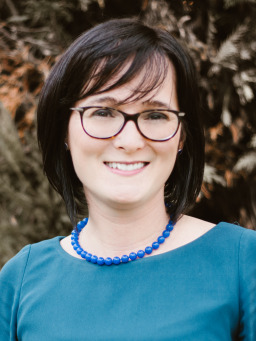 I am Associate Professor in Orbital Mechanics at Politecnico di Milano and Principal Investigator of the COMPASS project. Before that I was Associate Professor and Lecturer in Spacecraft Engineering at the University of Southampton in the Astronautics Research Group till Jul 2016. My research areas spaces among orbital dynamics, trajectory design and optimisation, dynamical system analysis and control, and space mission analysis and design. I am delegate for the Inter Agency Debris Coordination Committee and the UN mandated Space Mission Planning Advisory Group for mission to asteroids.
I am Associate Professor in Orbital Mechanics at Politecnico di Milano and Principal Investigator of the COMPASS project. Before that I was Associate Professor and Lecturer in Spacecraft Engineering at the University of Southampton in the Astronautics Research Group till Jul 2016. My research areas spaces among orbital dynamics, trajectory design and optimisation, dynamical system analysis and control, and space mission analysis and design. I am delegate for the Inter Agency Debris Coordination Committee and the UN mandated Space Mission Planning Advisory Group for mission to asteroids.
My current research on orbital dynamics, space debris and asteroids was driven by the participation to research projects funded by the European Space Agency on the disposal of spacecraft in Medium Earth Orbit, the study of the effect of a spacecraft fragmentation in Low Earth Orbit and Geostationary orbit and the design of novel strategies for disposing the spacecraft orbiting in Highly Elliptical Orbits or at Libration Point Orbits. A study on the motion in vicinity of asteroids and ways to manipulate their orbits was also funded by the European Space Agency in the framework of the General Study Program.
In 2013, I have been awarded a personal Intra-European Marie Curie grant from the European Commission within the Framework Program 7. This grant funded my two-year position as Marie Curie Fellow at Politecnico di Milano (Italy) on the project “Space Debris Evolution, Collision risk, and Mitigation” (SpaceDebECM).
During my previous experience as Research Fellow at the Advanced Space Concepts Laboratory at the University of Strathclyde (UK), between 2009 and 2012, I have led the development of the research theme on the orbital dynamics of micro-scale spacecraft (within a project funded by the European Research Council).
I gained a Master degree in Aerospace Engineering from Politecnico di Milano (Italy) in 2005 and a PhD in Aerospace Engineering from the University of Glasgow (UK) in 2010, with a thesis on “Optimal Trajectory Design for Interception and Deflection of Near Earth Objects” funded by the EPSRC on “Optimal Interception and Deviation of Potentially Hazardous Near Earth Objects”.
Researchers
-
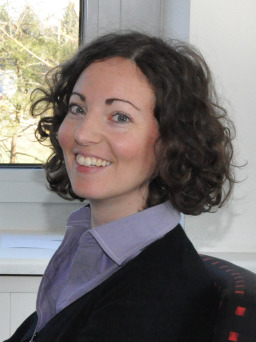 I received both my MEng (2005) and PhD (2009) in Aerospace Engineering from the Politecnico di Milano, Italy.
I received both my MEng (2005) and PhD (2009) in Aerospace Engineering from the Politecnico di Milano, Italy.
Since 2009, I have been working as a Research Engineer in the Space Flight Technology Department at the DLR’s German Space Operations Center (GSOC). My working activities focus on development of AOCS/GNC algorithms, simulation systems, and flight software for formation-flying and proximity operations applications.
I have been involved into the PRISMA formation-flying mission as flight operations GNC engineer and as experiment developer (ARGON – 2012). I acted as Principal Investigator for the AVANTI experiment – flown in late 2016 on the BIROS satellite – following its design, development, integration, and operation.
I joined the ERC H2020 COMPASS project in April 2018. -
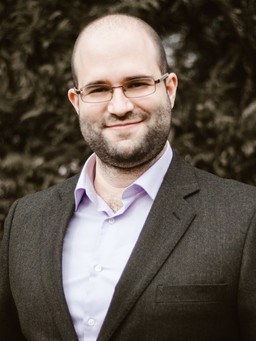
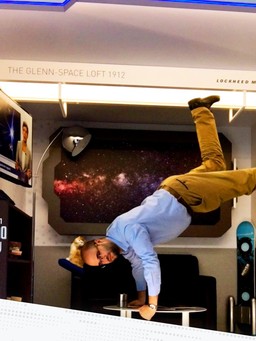 I am a postdoctoral researcher at Politecnico di Milano, working on topics related to collision avoidance, asteroid deflection and space debris removal. My research interests also include orbit propagation and space trajectories design and optimization. On all these topics, I try to apply both numerical and analytical techniques, exploiting the synergies between them to get solutions that both provide physical insight and have practical applications. I also carry out teaching activities, collaborating in a Master’s-level Orbital Mechanics course and supervising visiting and master thesis students. I am actively involved in outreach activities, and firmly believe that scientific communication and engagement are key drivers for the advancement of society. Before joining the COMPASS team in early 2018 I was a PhD student at the Universidad Politecnica de Madrid (Spain), with a grant from the Spanish Ministry of Education. During that period, I also participated in several international projects, most notably the EU-funded FP7 project LEOWSEEP, seeking to advance a novel contactless active debris removal technology known as ion beam shepherd.
I am a postdoctoral researcher at Politecnico di Milano, working on topics related to collision avoidance, asteroid deflection and space debris removal. My research interests also include orbit propagation and space trajectories design and optimization. On all these topics, I try to apply both numerical and analytical techniques, exploiting the synergies between them to get solutions that both provide physical insight and have practical applications. I also carry out teaching activities, collaborating in a Master’s-level Orbital Mechanics course and supervising visiting and master thesis students. I am actively involved in outreach activities, and firmly believe that scientific communication and engagement are key drivers for the advancement of society. Before joining the COMPASS team in early 2018 I was a PhD student at the Universidad Politecnica de Madrid (Spain), with a grant from the Spanish Ministry of Education. During that period, I also participated in several international projects, most notably the EU-funded FP7 project LEOWSEEP, seeking to advance a novel contactless active debris removal technology known as ion beam shepherd.
Postdoctoral Researchers
-
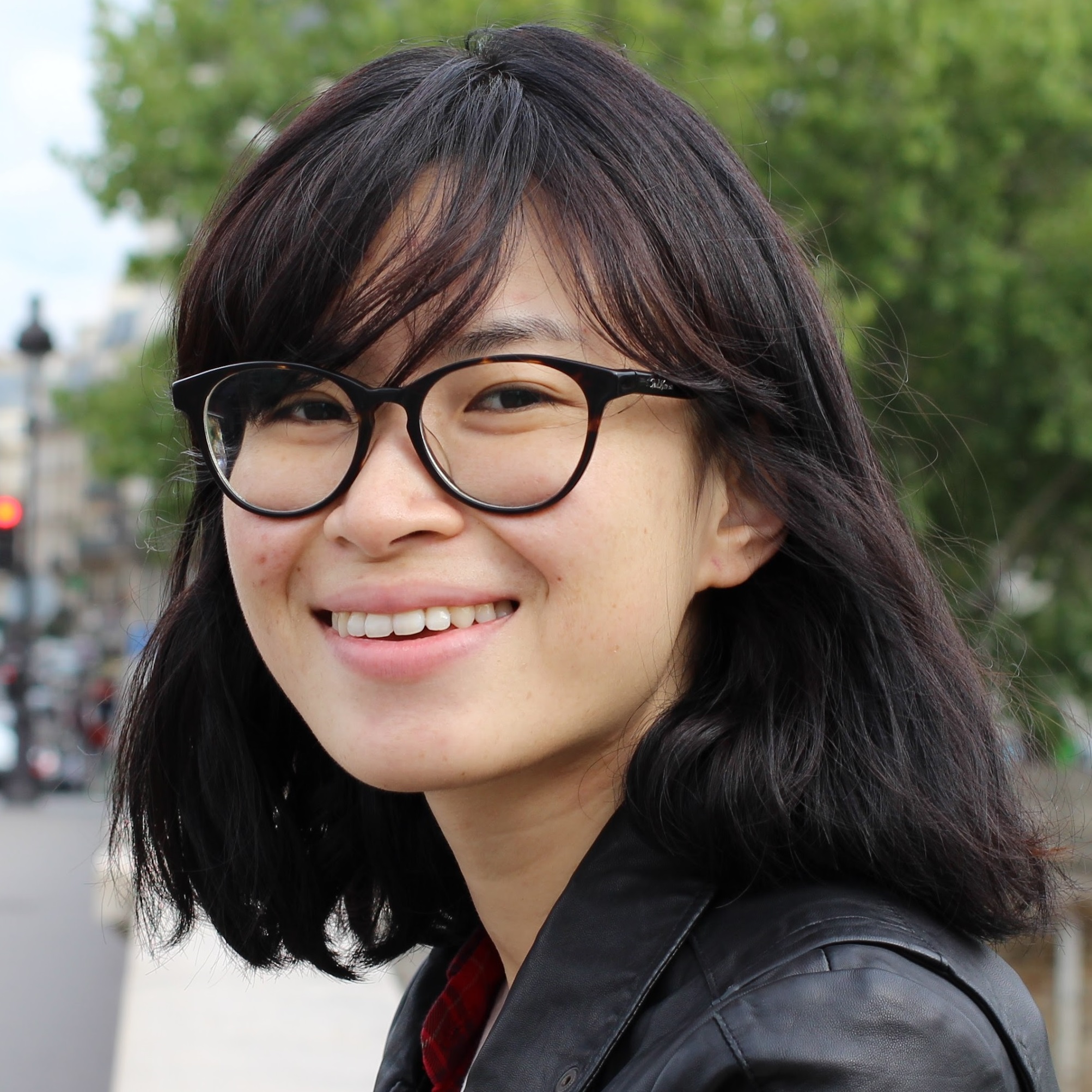 I am a postdoc at Politecnico di Milano since June 2024. My current research is on space situational awareness, mainly about maneuver detection and identification as well as long-term orbit propagation. My research interest also includes spacecraft relative GNC. I got my MSc and PhD in 2011 and 2018 respectively, both in Aerospace Engineering from KAIST, South Korea. Before joining the COMPASS team I was a researcher at Chair of Space Technology, TU Berlin.
I am a postdoc at Politecnico di Milano since June 2024. My current research is on space situational awareness, mainly about maneuver detection and identification as well as long-term orbit propagation. My research interest also includes spacecraft relative GNC. I got my MSc and PhD in 2011 and 2018 respectively, both in Aerospace Engineering from KAIST, South Korea. Before joining the COMPASS team I was a researcher at Chair of Space Technology, TU Berlin.
PhD Candidates
-
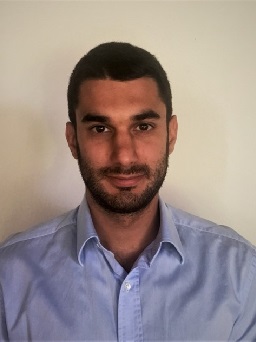 I am currently a PhD student at the Politecnico di Milano within the COMPASS group since 2020. My academic background includes a bachelor’s degree in mechanical engineering from the University of Parma and a Master’s degree in Space Engineering from Politecnico di Milano. Prior to my doctoral studies, I served as a research fellow at the COMPASS group, contributing to mission analysis and the design of guidance, navigation, and control systems for the Sunrise project, an ESA and OneWeb funded study for an active debris removal service for large constellations. In my current Ph.D. research, I am concentrating on strategies for ensuring safe operations in proximity for In Orbit Servicing (IOS) and Active Debris Removal (ADR) missions. Specifically, my focus is on the development of guidance and control strategies with enhanced safety characteristics exploiting relative orbital elements. Moreover, I study the impact of debris population properties for optimal target selection of targets for ADR mission. From March 2023 I worked on the SpEye mission, a 6U CubeSat funded by the Agenzia Spaziale Italiana (ASI) through the Alcor programme and aims to demonstrate inspection and proximity operations capabilities of a nanosatellite. Within the project I studied the mission analysis, guidance and control and flight safety aspects. Among my interest are advanced GNC strategies, trajectory optimisation, astrodynamics, and space sustainability.
I am currently a PhD student at the Politecnico di Milano within the COMPASS group since 2020. My academic background includes a bachelor’s degree in mechanical engineering from the University of Parma and a Master’s degree in Space Engineering from Politecnico di Milano. Prior to my doctoral studies, I served as a research fellow at the COMPASS group, contributing to mission analysis and the design of guidance, navigation, and control systems for the Sunrise project, an ESA and OneWeb funded study for an active debris removal service for large constellations. In my current Ph.D. research, I am concentrating on strategies for ensuring safe operations in proximity for In Orbit Servicing (IOS) and Active Debris Removal (ADR) missions. Specifically, my focus is on the development of guidance and control strategies with enhanced safety characteristics exploiting relative orbital elements. Moreover, I study the impact of debris population properties for optimal target selection of targets for ADR mission. From March 2023 I worked on the SpEye mission, a 6U CubeSat funded by the Agenzia Spaziale Italiana (ASI) through the Alcor programme and aims to demonstrate inspection and proximity operations capabilities of a nanosatellite. Within the project I studied the mission analysis, guidance and control and flight safety aspects. Among my interest are advanced GNC strategies, trajectory optimisation, astrodynamics, and space sustainability. -
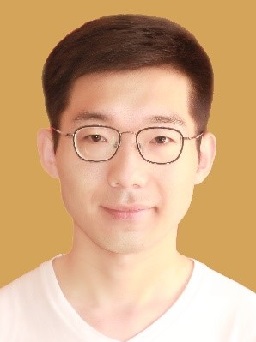 I started PhD in the COMPASS team at Politecnico di Milano from November 2020. My research topic is on analytical approach leveraging perturbation for post mission disposal manoeuvre design, including developing and improving semi-analytical orbital propagators, phase space study of the long-term orbit dynamics, and analytical computation of the post mission disposal manoeuvre with the help of semi-analytical models and phase space description. I obtained MSc in Aerospace Engineering in July 2020 from Harbin Institute of Technology, China.
I started PhD in the COMPASS team at Politecnico di Milano from November 2020. My research topic is on analytical approach leveraging perturbation for post mission disposal manoeuvre design, including developing and improving semi-analytical orbital propagators, phase space study of the long-term orbit dynamics, and analytical computation of the post mission disposal manoeuvre with the help of semi-analytical models and phase space description. I obtained MSc in Aerospace Engineering in July 2020 from Harbin Institute of Technology, China. -
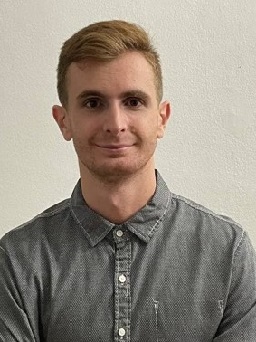 From 2022, I am a PhD student at the Politecnico di Milano as part of the COMPASS group, under the supervision of Prof. Camilla Colombo. As part of my research, I am developing and implementing a metric to assess the impact of a space mission on the space environment and the characterisation of a capacity concept to regulate the sustainability of the space. In addition, I am also investigating methodologies devoted to characterise and reconstruct in-orbit fragmentations.
From 2022, I am a PhD student at the Politecnico di Milano as part of the COMPASS group, under the supervision of Prof. Camilla Colombo. As part of my research, I am developing and implementing a metric to assess the impact of a space mission on the space environment and the characterisation of a capacity concept to regulate the sustainability of the space. In addition, I am also investigating methodologies devoted to characterise and reconstruct in-orbit fragmentations. -
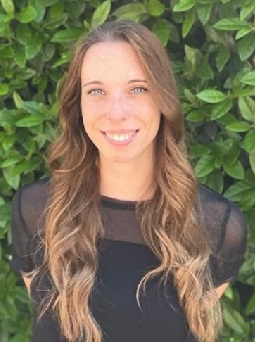 After working as a researcher on the topics of modelling and simulation of satellites orbital and attitude dynamics and leveraging on my studies as a MSc-level Space Engineer and BSc-level Aerospace Engineer, I am currently a Ph.D. candidate at the Department of Aerospace Science and Technology at Politecnico di Milano, as part of the COMPASS group. Aim of my Ph.D. research is to provide scientific support to the definition of efficient remediation strategies for the long-term debris problem. This will be obtained combining a predictive model of the debris cloud’s density and a robust feedback controller acting on the complex system.
After working as a researcher on the topics of modelling and simulation of satellites orbital and attitude dynamics and leveraging on my studies as a MSc-level Space Engineer and BSc-level Aerospace Engineer, I am currently a Ph.D. candidate at the Department of Aerospace Science and Technology at Politecnico di Milano, as part of the COMPASS group. Aim of my Ph.D. research is to provide scientific support to the definition of efficient remediation strategies for the long-term debris problem. This will be obtained combining a predictive model of the debris cloud’s density and a robust feedback controller acting on the complex system. -
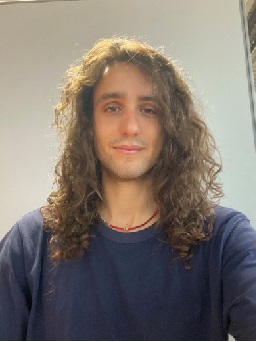 I am a PhD candidate at Politecnico di Milano, working on several topics such as fast in-orbit reactions, rockets optimal trajecotry, collision avoidance manoeuvres and re-entry predictions. Prior to becoming a PhD candidate I worked at the Centro di Ateneo di Studi e Attività Spaziali “Giuseppe Colombo” (CISAS) on a fragmentation model for hypervelocity impacts over composite materials. In my master thesis I investigated the topics of space sustainability and collision probability, specifically related to the presence of large satellite constellations.
I am a PhD candidate at Politecnico di Milano, working on several topics such as fast in-orbit reactions, rockets optimal trajecotry, collision avoidance manoeuvres and re-entry predictions. Prior to becoming a PhD candidate I worked at the Centro di Ateneo di Studi e Attività Spaziali “Giuseppe Colombo” (CISAS) on a fragmentation model for hypervelocity impacts over composite materials. In my master thesis I investigated the topics of space sustainability and collision probability, specifically related to the presence of large satellite constellations. -
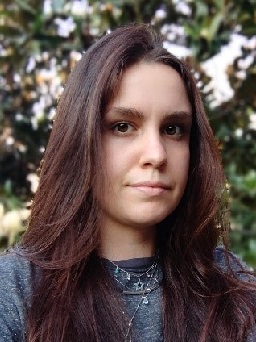 I am a Ph.D. candidate within the COMPASS group at Politecnico di Milano since December 2023. My PhD focuses on end-of-life disposal design for missions in the cislunar space. This includes topics such as chaotic dynamical systems, spacecraft disposal, deep-space astrodynamics, and space situational awareness.
I am a Ph.D. candidate within the COMPASS group at Politecnico di Milano since December 2023. My PhD focuses on end-of-life disposal design for missions in the cislunar space. This includes topics such as chaotic dynamical systems, spacecraft disposal, deep-space astrodynamics, and space situational awareness.
I received my master’s degree in Space Engineering in 2022, with a thesis focused on continuation methods applied to low-thrust indirect optimal control problems for trajectory optimization. From April to December 2023, I worked as a Junior Research Fellow, within the COMPASS group, under the supervision of Professor Camilla Colombo. My research focused on deep-space trajectory design in multibody dynamical systems. In addition, I worked on the mission design of the REMEC satellite, which aims to reach a Halo orbit in Sun-Earth L2 to study energetic cosmic rays. -
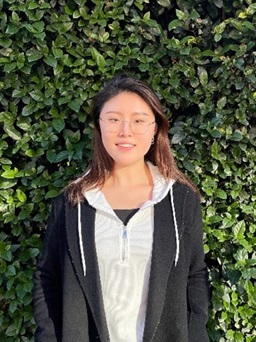 Since November 2023, I am a PhD student at Politecnico di Milano as part of the COMPASS group. My academic background includes a Bachelor’s and a Master’s degree in Aerospace Engineering from Beijing Institute of Technology in China. In my master thesis, I investigated high-dimensional optimization problems for observation resource allocation.
Since November 2023, I am a PhD student at Politecnico di Milano as part of the COMPASS group. My academic background includes a Bachelor’s and a Master’s degree in Aerospace Engineering from Beijing Institute of Technology in China. In my master thesis, I investigated high-dimensional optimization problems for observation resource allocation.
My current PhD research focuses on allocating space-based sensors, especially for emergency response tasks. I’m exploiting advanced optimization techniques to address challenges in sensor tasking. In addition, I am also investigating sustainability metrics to measure the environmental impact of missions in space. -
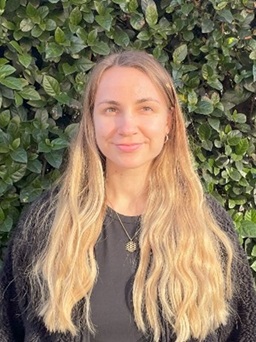 Since November 2023 I am a PhD student in the COMPASS group at Politecnico di Milano. My academic background include a Bachelor’s and a Master’s degree in Physics from Technische Universität Darmstadt in Germany. In my master thesis at the German Aerospace Center (DLR) I researched the application of deep reinforcement learning for attitude control in an Active Debris Removal maneuver.
Since November 2023 I am a PhD student in the COMPASS group at Politecnico di Milano. My academic background include a Bachelor’s and a Master’s degree in Physics from Technische Universität Darmstadt in Germany. In my master thesis at the German Aerospace Center (DLR) I researched the application of deep reinforcement learning for attitude control in an Active Debris Removal maneuver.
In my current PhD research I investigate the density based approach for modelling the global space debris population. This includes not only modelling the existing space debris population, but also requires an understanding of how the environment will develop in the future. In particular I am focusing on including uncertainties and the environmental and economic impact of space missions. -
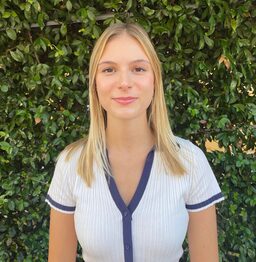 I am a PhD candidate within the COMPASS group since December 2023. My research focuses on the reconstruction of in-orbit fragmentation events upon their occurrence to characterise the break-up and reduce the risk posed to other satellites. The goal of my research is to also be able to reconstruct fragmentations after months or years when more data is available using the knowledge of the evolution of a fragmentation cloud, and link the long-term reconstruction to the short-term one. I obtained my Master’s Degree from Politecnico di Milano in December 2023, with a thesis aimed at modelling space debris clouds using a continuum formulation under the supervision of Professor Camilla Colombo.
I am a PhD candidate within the COMPASS group since December 2023. My research focuses on the reconstruction of in-orbit fragmentation events upon their occurrence to characterise the break-up and reduce the risk posed to other satellites. The goal of my research is to also be able to reconstruct fragmentations after months or years when more data is available using the knowledge of the evolution of a fragmentation cloud, and link the long-term reconstruction to the short-term one. I obtained my Master’s Degree from Politecnico di Milano in December 2023, with a thesis aimed at modelling space debris clouds using a continuum formulation under the supervision of Professor Camilla Colombo. -
 I am currently a PhD student at the Politecnico di Milano, part of the COMPASS group since September 2024. I hold Bachelor’s degrees in Management and Mechanical Engineering from the University of Parma, as well as a Master’s degree in Space Engineering from Politecnico di Milano. Before joining COMPASS, I conducted research at the GRVC Laboratory (University of Seville), contributing to projects in aerial (GRIFFIN) and space robotics (AROSA). My work involved developing realistic simulation models and synthesizing advanced control schemes. My current research, funded by Infinite Orbits and conducted in cooperation with them, focuses on developing advanced autonomous Guidance, Navigation, and Control (GNC) algorithms for a CubeSat technology demonstration in Low Earth Orbit (LEO). This research addresses key challenges such as handling uncooperative targets, computational constraints, perturbations, weak observability, and designing fuel-efficient trajectories. My primary research interests include autonomous relative GNC, orbital mechanics, optimization, active debris removal, and space robotics.
I am currently a PhD student at the Politecnico di Milano, part of the COMPASS group since September 2024. I hold Bachelor’s degrees in Management and Mechanical Engineering from the University of Parma, as well as a Master’s degree in Space Engineering from Politecnico di Milano. Before joining COMPASS, I conducted research at the GRVC Laboratory (University of Seville), contributing to projects in aerial (GRIFFIN) and space robotics (AROSA). My work involved developing realistic simulation models and synthesizing advanced control schemes. My current research, funded by Infinite Orbits and conducted in cooperation with them, focuses on developing advanced autonomous Guidance, Navigation, and Control (GNC) algorithms for a CubeSat technology demonstration in Low Earth Orbit (LEO). This research addresses key challenges such as handling uncooperative targets, computational constraints, perturbations, weak observability, and designing fuel-efficient trajectories. My primary research interests include autonomous relative GNC, orbital mechanics, optimization, active debris removal, and space robotics. -
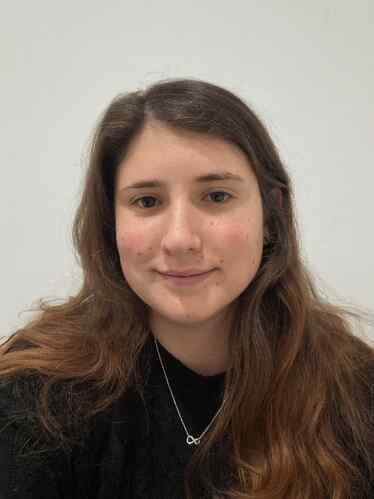 I am a PhD candidate within the COMPASS group since November 2024 under the supervision of Professor Camilla Colombo. My research focuses on assessing the long-term evolution of space debris and developing indicators to evaluate the environmental impact of space missions. I obtained my Master’s Degree from University of Würzburg in September 2024, with a thesis focused on doing a preliminary mission analysis of a very low Earth orbit mission.
I am a PhD candidate within the COMPASS group since November 2024 under the supervision of Professor Camilla Colombo. My research focuses on assessing the long-term evolution of space debris and developing indicators to evaluate the environmental impact of space missions. I obtained my Master’s Degree from University of Würzburg in September 2024, with a thesis focused on doing a preliminary mission analysis of a very low Earth orbit mission.
